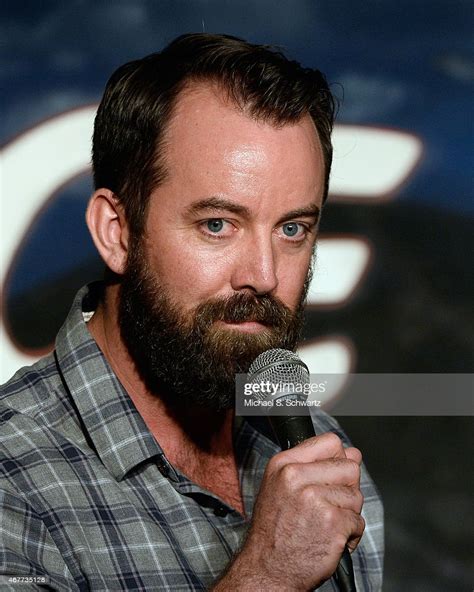A Quote by Richard Dawkins
Next time that somebody tells you something is true, why not say to them: 'What kind of evidence is there for that?' And if they can't give you a good answer, I hope you'll think very carefully before you believe a word they say.
Related Quotes
Very commonly I get queries. Somebody saw something of mine on YouTube and of course if there is a talk on YouTube, there aren't any footnotes - and they want to know why did you say this. Well if they bothered to look up something in print, they would've seen why I said that. If they ask for evidence, I just say well take a look and mention something they can read and that usually ends the conversation.
The Word 'Repulse': I hate this word. I believe 'repel' is a perfectly good word, and 'repulsion' is the noun, as well as the title of an excellent Dinosaur Jr. song. A compulsion compels you; an impulse impels you. Nobody ever says 'compulse' or 'impulse' as a verb. So why would you ever say 'repulse'? This word haunts me in my sleep, like a silver dagger dancing before my eyes. Renee looked it up and I was wrong. But I still kind of think I'm right.
I just want the viewer to have a very informative and entertaining listen. I want them to feel like they've pulled up a chair right next to us. I hope to bring to the telecast what I call 'buddy information' - where you hear something and maybe the next day you say to your buddy, 'Hey, I heard something about this player or this team,' and they pass it on by word of mouth.
People with the best intentions will often give you advice on why you shouldn’t take a risk because of what could happen. While some of what they say may be true, you should never allow them to get their negative anchors into your mind because, like them, you too will begin to sink. Next time this happens, throw them a life-line, and ask them what is good about their situation.
Mathematics is really an art, not a science. You could say science also is an art. So I would say the difference is something you can't really describe - you can only recognize. You hear somebody playing the violin, and it was Fritz Kreisler or it was somebody else, and you can tell the difference. It is so in almost every art. We just don't understand why it is that there are just a few people who are just completely off the scale and the rest of them are just mediocre. And we don't know why. But I say it's certainly true of mathematics.
Next time someone tells me they believe in God, I'll say 'Oh which one? Zeus? Hades? Jupiter? Mars? Odin? Thor? Krishna? Vishnu? Ra?...' If they say 'Just God. I only believe in the one God,' I'll point out that they are nearly as atheistic as me. I don't believe in 2,870 gods, and they don't believe in 2,869.
How does it happen that a writer who's not even very good - and I can say that, I've read four or five of his books - gets to be in charge of the world's destiny? Or of the entire universe's?" If he's not very good, why didn't you stop at one?" Mrs. Tassenbaum smiled. "Touché. He is readable, I'll give him that - tells a good story.
You can tell a true war story by the questions you ask. Somebody tells a story, let's say, and afterward you ask, 'Is it true?' and if the answer matters, you've got your answer . . . Absolute occurrence is irrelevant. A thing may happen and be a total lie; another thing may not happen and be truer than the truth.
I ask the question all the time of people that are on the anti-gun side. And I say, OK, if you're in a situation like the tragedy and the murderous rage in San Bernardino and you're in a room like that, would you want somebody that knew how to use a firearm and had one with them, or if somebody breaks into your house, what are you going to do if they are armed and you are not? And there's not a good answer. There's no good answer except you're a sitting duck for the most part if you're not armed.
Eleanor Roosevelt fights for an anti-lynch law with the NAACP, with Walter White and Mary McLeod Bethune. And she begs FDR to say one word, say one word to prevent a filibuster or to end a filibuster. From '34 to '35 to '36 to '37 to '38, it comes up again and again, and FDR doesn't say one word. And the correspondence between them that we have, I mean, she says, "I cannot believe you're not going to say one word." And she writes to Walter White, "I've asked FDR to say one word. Perhaps he will." But he doesn't. And these become very bitter disagreements.





































